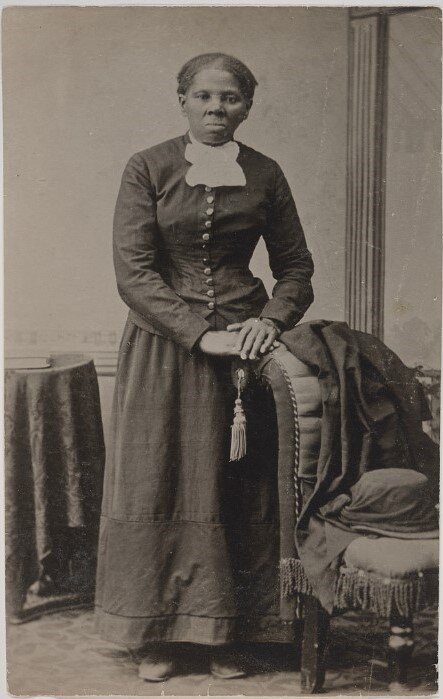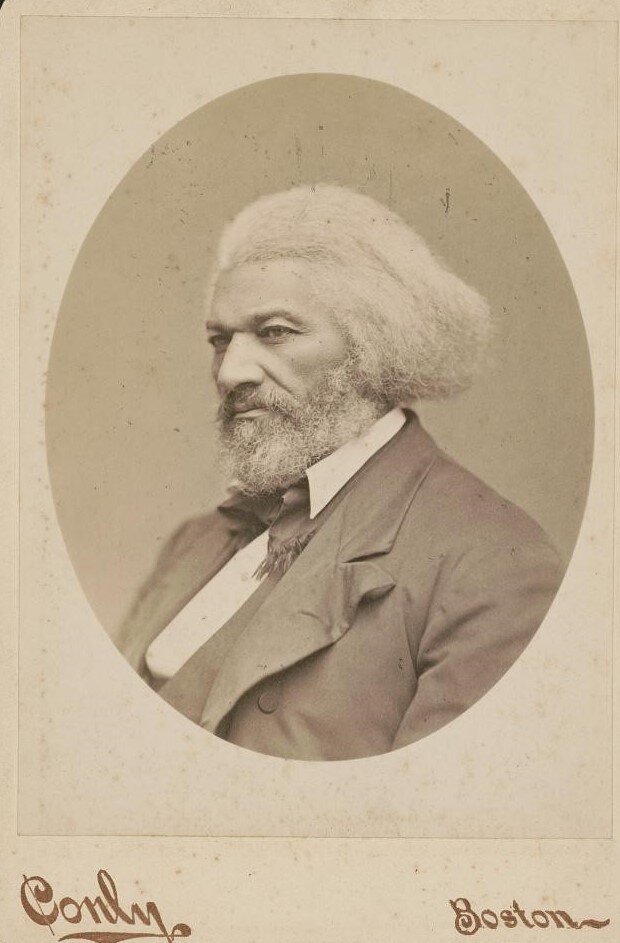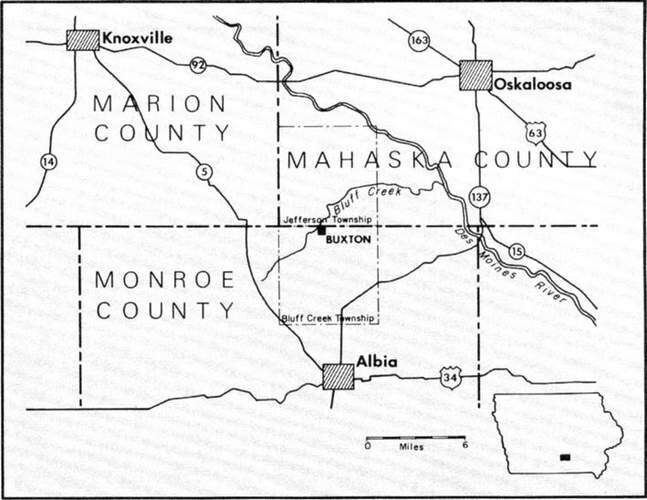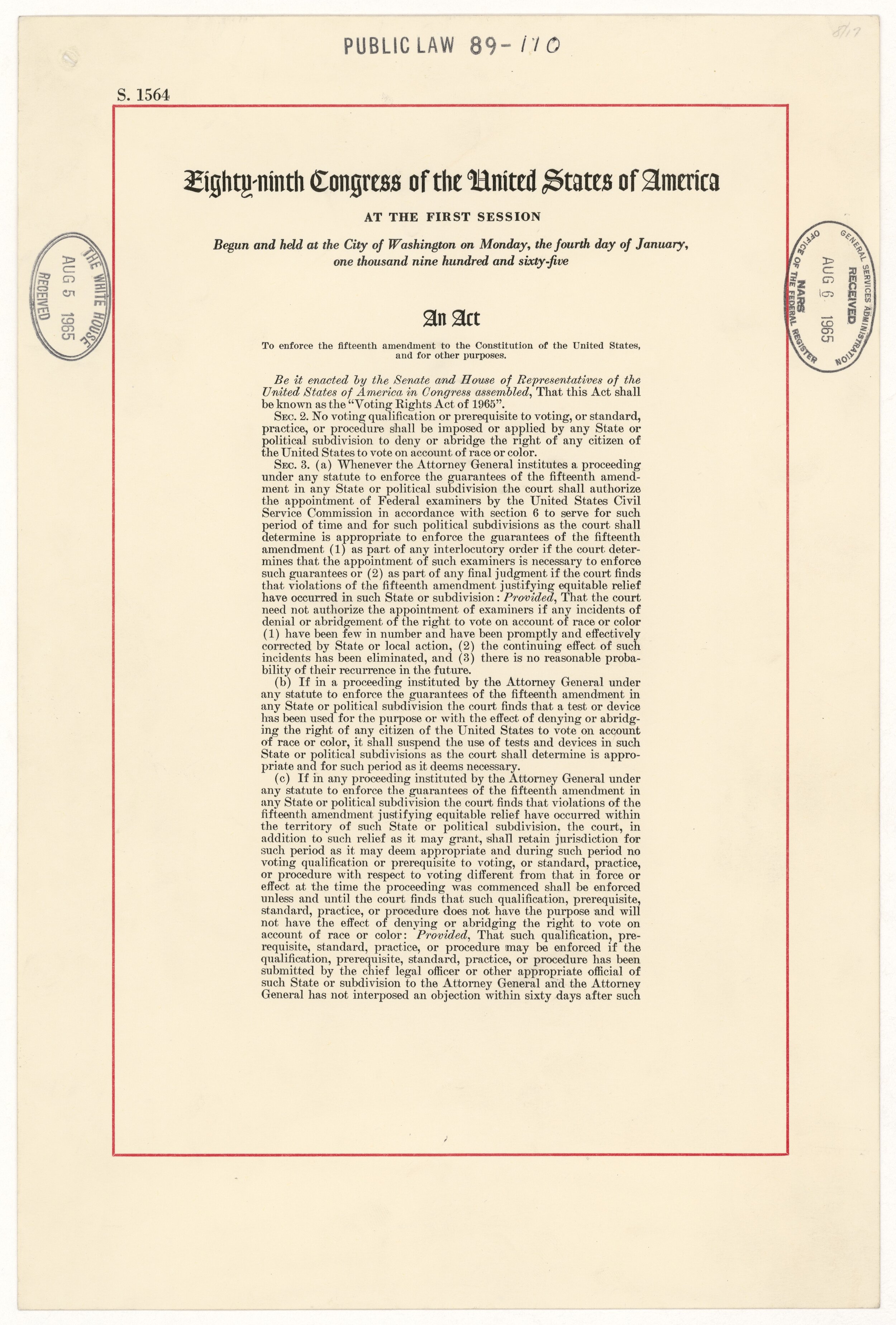Toward a Universal Suffrage > Voting Rights History and Timeline
Voting Rights History
Sojourner Truth, Courtesy of the U.S. Library of Congress.
Harriet Tubman, Courtesy of the U.S. Library of Congress.
Frederick Douglass, Courtesy of the U.S. Library of Congress.
When the United States Constitution was written in 1787, it said little about voting rights. States determined who had the right to vote. Every state restricted voting rights to male property owners, and sometimes only to white male property owners.
The women’s suffrage movement began in the mid-1800s and grew out of the abolitionist movement. Many prominent abolitionists like Sojourner Truth, Harriet Tubman, and Frederick Douglass, also worked for women’s suffrage.
The 15th Amendment was added to the Constitution after the Civil War. This amendment allowed African American men to vote but all women were still denied. For a brief time, African American men were able to vote and hold elective office throughout the United States. When Reconstruction ended in the 1880s Southern white leaders put in place a system of Jim Crow laws that kept African Americans from voting.
Suffragists continued to work for the women’s vote but the movement was split over the 15th amendment. Some white suffragists were angered over not gaining the vote and opposed or were quiet about expanding the vote to African American women. African American women, especially club members, supported suffrage as part of a broader agenda of civil rights.
The 19th Amendment granted about 500,000 African American women the right to vote when it was ratified in 1920. Nonetheless, many women of color were not able to vote because of other discriminatory laws. Asian American and Native American women were granted citizenship between 1922 and 1943.
African American women in the segregated South had to wait longer. The Voting Rights Act of 1965 and the 24th Amendment (1964) outlawed discriminatory practices like literacy tests, white primaries, and poll taxes that kept African Americans from voting.
Voting rights remain controversial today as states debate felon voting rights, early voting, and voter ID laws. Some of these measures expand voting rights; others restrict them.
Timeline
July 4, 1838
Iowa becomes a territory and allows only white men to vote.
1857
The Iowa Constitution is ratified and allows only white men over the age of 21 to vote.
1866
A suffrage bill is defeated in an Iowa Senate committee that would have given white women and some African American men the right to vote.
November 3, 1868
Iowa voters approve an amendment to the Iowa constitution that removes the word “white” from the voting section. The amendment is approved by the Iowa General Assembly on March 31, 1869 and gives African American and Native American men the right to vote.
February 3, 1870
15th Amendment, Courtesy of the National Archives.
Iowa becomes the 28th and final state needed to ratify the 15th Amendment to the US Constitution. This amendment prohibits states and the Federal government from denying a citizen’s right to vote based on “race, color, or previous condition of servitude.” It is interpreted to apply only to men.
March 1870
The Iowa legislature approves a resolution to amend the state constitution to give women the vote. A second approval by the 1872 General Assembly is required before a resolution can be presented to Iowa voters.
June 1870
The Iowa Woman Suffrage Association, later known as the Iowa Equal Suffrage Association, is formed in Mt. Pleasant, with membership open to all, regardless of gender or race.
1872
The women's suffrage amendment to the Iowa Constitution fails its second vote in the legislature. A women's suffrage amendment is considered in almost every subsequent legislature, but does not pass two consecutive sessions until 1916.
April 13, 1894
The 25th Iowa General Assembly grants tax-paying women partial suffrage, allowing them to vote on bond issues but not to elect public officials.
May 1902
Meeting of the Iowa Association of Colored Women's Clubs Davenport, May 1903. Courtesy the State Historical Society of Iowa.
The Iowa Association of Colored Women's Clubs, later known as the Iowa Federation of Colored Women's Clubs, is founded, with Helen Downey of Ottumwa as the first president.
1914
The Iowa Federation of Colored Women's Clubs, later representing 40 African-American women's clubs in Iowa, forms a standing suffrage committee headed by Teresa Adams of Davenport.
Buxton was located in Monroe County. It was noted for being a multi-ethnic community with no legal segregation. The majority of residents were African American. The town no longer exists.
June 1916
African-American women, men, and children in Buxton, Iowa, march for suffrage in a parade.
June 5, 1916
A referendum to amend the Iowa Constitution to grant women full suffrage is defeated by Iowa voters. An investigation by the Women’s Christian Temperance Union uncovers fraud but the election cannot be invalidated.
1918
Gertrude Rush. Courtesy of the Iowa Department of Human Rights’ Iowa Women’s Hall of Fame.
Gertrude Rush becomes the first
African-American female lawyer in Iowa.
After being denied membership in the American Bar Association, she and four other
African-American lawyers found the Negro Bar Association (later renamed the National
Bar Association) in 1925. Rush remains the
only female African-American lawyer in Iowa until 1953.
April 1919
A presidential suffrage bill passes in the Iowa Senate on April 4 and in the Iowa House on
April 19.
June 4, 1919
The 19th Amendment to the U.S. Constitution passes in the U.S. Senate, after passing in the U.S. House of Representative on May 21. To be added to the Constitution, it needs to be ratified by three-fourths (36) of the states.
July 2, 1919
In a special session of the state legislature, Iowa becomes the tenth state to ratify the
19th Amendment to the U.S. Constitution. The vote in the House is 96 to 5 and the vote in the
Senate is 45 to 0.
August 1919
Sue M. Wilson Brown. Courtesy the State Historical Society of Iowa.
The Des Moines League of Colored Women Voters is organized, with Sue M. Wilson Brown as its founder and first president. Leagues are also formed in Keokuk and Fort Dodge. Members of the League volunteered in various capacities at the polls for an election in Des Moines in 1920.
October 2, 1919
The Iowa Equal Suffrage Association (IESA) reorganizes as the Iowa League of Women Voters in Boone. The organization is later renamed the League of Women Voters of Iowa. Sue M. Wilson Brown, president of the Des Moines League of Colored Women Voters, speaks at the last IESA convention, and she and three other members of the Des Moines League of Colored Women Voters are delegates to the first convention of the Iowa League of Women Voters.
August 1920
On August 18, Tennessee becomes the thirty-sixth and final state needed to ratify the 19th amendment. On August 26, 1920, U.S. Secretary of State Bainbridge Colby certifies the ratification of the 19th Amendment.
Today, August 26 is recognized as Women's Equality Day.
1926
Legal provisions barring women from holding political office in Iowa are removed.
1962
The 24th Amendment to the Constitution, which outlaws poll taxes, is ratified.
1964
Willie Stevenson Glanton is elected to the Iowa House of Representatives, the first African American woman elected to the Iowa legislature. Glanton was also the first woman to be an assistant Polk County attorney, and the first woman and first African American elected to the Iowa Chapter of the Federal Bar Association.
July 2, 1964
The Civil Rights Act of 1964 is signed into law. This act outlaws segregation in employment and public accommodations and creates the Office of Equal Opportunity to investigate charges of discrimination. This law provides many new opportunities for African American women redress if they experience discrimination.
1965
The Voting Rights Act of 1965. Courtesy the National Archives.
The Voting Rights Act of 1965 is passed. This law prohibits literacy tests and other discriminatory practices that kept people of color from voting and political participation.
1972
The Iowa Commission on the Status of Women (ICSW) is established in the Iowa Code. Prior to this, the ICSW existed as a Governor's Commission on the Status of Women under Governor Hughes and Governor Ray.
March 24, 1972
Iowa becomes the fourth state to ratify the Equal Rights Amendment (ERA) to the US Constitution. The amendment guarantees equal legal rights regardless of sex. First proposed in 1923, the amendment did not pass out of Congress until 1972. As of the production of this exhibit, the ERA has not been fully ratified.
1987
The Iowa Legislature passes legislation requiring gender balance on all state boards and commissions.
May 10, 1988
The Iowa Commission on the Status of Blacks, now known as the Iowa Commission on the Status of African Americans, becomes a statutory agency by the General Assembly of the State of Iowa.
1995
LaMetta Wynn. Courtesy the Catt Center for Women and Politics.
LaMetta Wynn is elected mayor of Clinton in 1995, the first African American woman to be elected mayor of an Iowa municipality.
1998
Iowa voters approve an amendment to the state Constitution to provide equal rights to women.
2009
The Iowa Legislature extends the application of gender balance requirements to municipal boards and commissions, becoming effective in 2012.
Judge Romonda D. Belcher
August 20, 2010
Romonda D. Belcher is appointed to the bench, becoming the first African American female judge in Iowa.
2013
The US Supreme Court in Shelby vs. Holder rules that section 4(b) of the Voting Rights Act is an undue burden to states. This decision undermines the Justice Department’s preclearance power, where certain jurisdictions are required to submit any proposed changes to their election laws for review to ensure they do not have discriminatory effects.
2013-present
After the Shelby decision, many states pass laws that may discriminate against racial and ethnic minorities and the poor. They include voter ID laws, aggressive purging of voter rolls, and shortening or eliminating early voting periods.
August 19, 2020
Senator Kamala Harris of California accepts the Democratic Party’s nomination for Vice President. She becomes the first Black woman and first Asian American to accept a major party’s vice presidential nomination.
November 3, 2020
Iowa sets a voter turnout record for a general election, with 1,697,000 votes cast. More than one million of these votes are cast by absentee ballot. The week before the election, National Public Radio reports that 261 polling places would not be open in the state. Most of these closures were in urban areas, which also happen to be where most of the state’s Black population lives. Waterloo, in Black Hawk County, is home to the state’s largest Black population. In that county, 30 percent of the polling places were closed. The reporters of this story discover that more polling places were closed
in areas of Waterloo with larger populations of people of color than in areas with larger
white populations.
January 20, 2021
Kamala Harris is sworn in as Vice President. Photo by Andrew Harnik of the Associated Press.
Kamala Harris is sworn in as Vice President of the United States, becoming the first Black woman and first Asian American to hold this office.
2021
More than 360 bills with restrictive voting provisions are introduced in 47 states. In Iowa, a new law reduces the early voting period by nine days, shortens the time absentee ballots can be received to be counted, and closes polling places an hour earlier on Election Day, among
other restrictions.












